Joseph Joffre
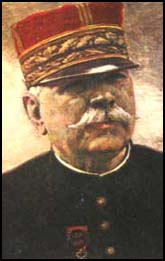
Joseph Joffre was born in Rivesaltes in 1852. At eighteen he joined the army and over the next few years developed his reputation in several colonial expeditions. When the outbreak of WWI happened Joffre was directed to command the French Army.
Winston Churchill
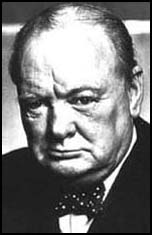
Winston Churchill, the son of Randolph Churchill, a Conservative politician, was born in Blenheim Palace, Woodstock, on 30th November, 1874.
During the war Churchill supplied military reports for the The Daily Telegraphand wrote books such as The Story of the Malakand Field Force (1898) and The River War(1899).
Archduke Franz Ferdinand
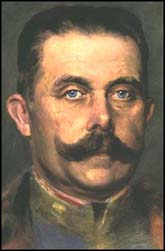
Heir to throne of the Austro- Hungarian. Ferdinand, and his wife were both assassinated in Sarajevo on June 28, 1914. Bogdan Zerajic a member for the Black Hand was the one who killed the Ferdinand and his wife
Kaiser Wilhelm II
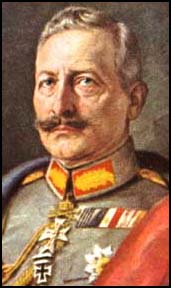
CIn 1888 Kaiser Wilhelm II became the 9th King of Russia and the 3rd Emperor of Germany. During the war he was commander and Chief of the armed forces.
Tsar Nicholas II
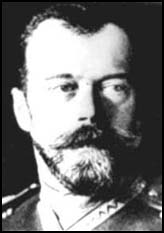
Nicholas, the eldest son of Alexander III, the Tsar of Russia, and Marie Feodorovna, was born at Krasnoye Selo in May 1868. When he was twenty-three he narrowly escaped assassination in Japan.
Nicholas succeeded to the throne following his father's death from liver disease on 20th October, 1894. Later that month he married the German princess, Alexandra of Hesse-Darmstadt. Alexandra, the grand-daughter of Queen Victoria, was a strong believer in the autocratic power of Tsardom and urged him to resist demands for political reform.
Erich von Ludendroff
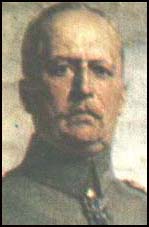
In 1885 Ludendorff was commissioned as a second lieutenant in the 57th Infantry Regiment. He later served with the 2nd Marine Battalion and the 8th Grenadier Guards. In 1893 he attended the War Academy and the following year was appointed to the General Staff of the General Army. By 1911 he was promoted to the rank of colonel. Ludendroff also worked with Paul von Hindenburg.
Paul von Hindenburg
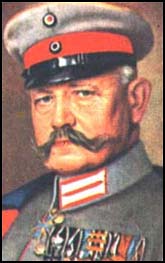
On the outbreak of the First World War Hindenburg was recalled to the German Army and after being after being sent to the Eastern Front won decisive victories over the Russians at Tannenberg (1914) and the Masaurian Lakes (1915). Hidenburg and his quarter- Master General Erich von Ludendroff, formed what became known as the Third Supreme Command.
Sir Douglas Haig
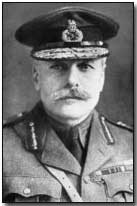
By August 1914 - the start of the First World War - Haig commanded 1st Army Corps within the BEF as Lieutenant General. At this time the BEF was under the control of Sir John French. Haig's 1st Army Corps served with distinction at Mons and at First Ypres.
President Woodrow Wilson
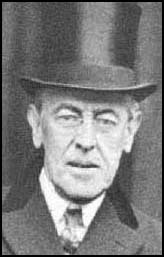
On the outbreak of the First World War President Woodrow Wilson declared a policy of strict neutrality. Although the USA had strong ties with Britain, Wilson was concerned about the large number of people in the country who had been born in Germany and Austria. Other influential political leaders argued strongly in favour of the USA maintaining its isolationist policy. This included the pacifist pressure group, the American Union Against Militarism.
On the 8th January, 1918, President Woodrow Wilson presented his Peace Program to Congress. Compiled by a group of US foreign policy experts, the programme included fourteen different points.
